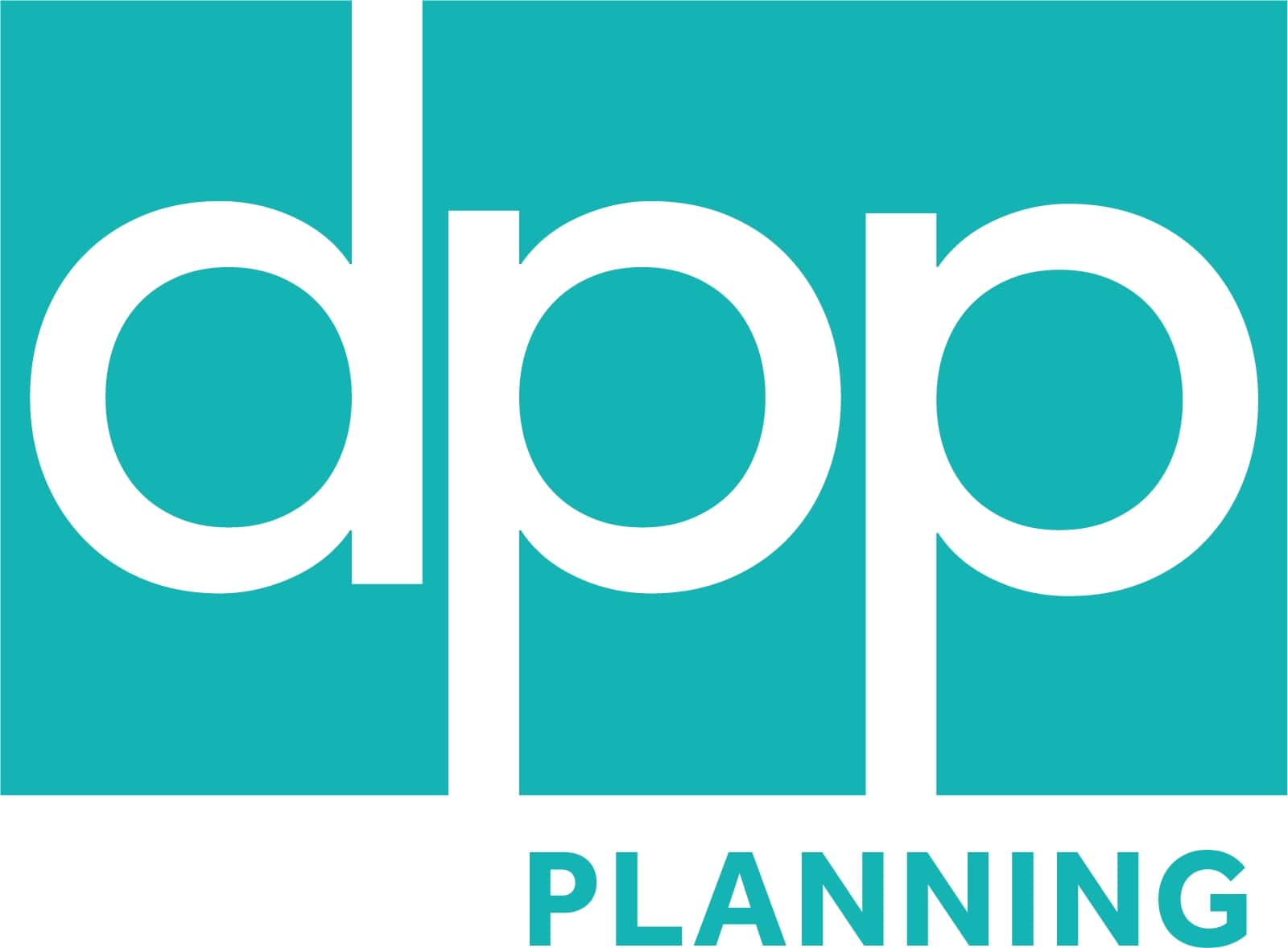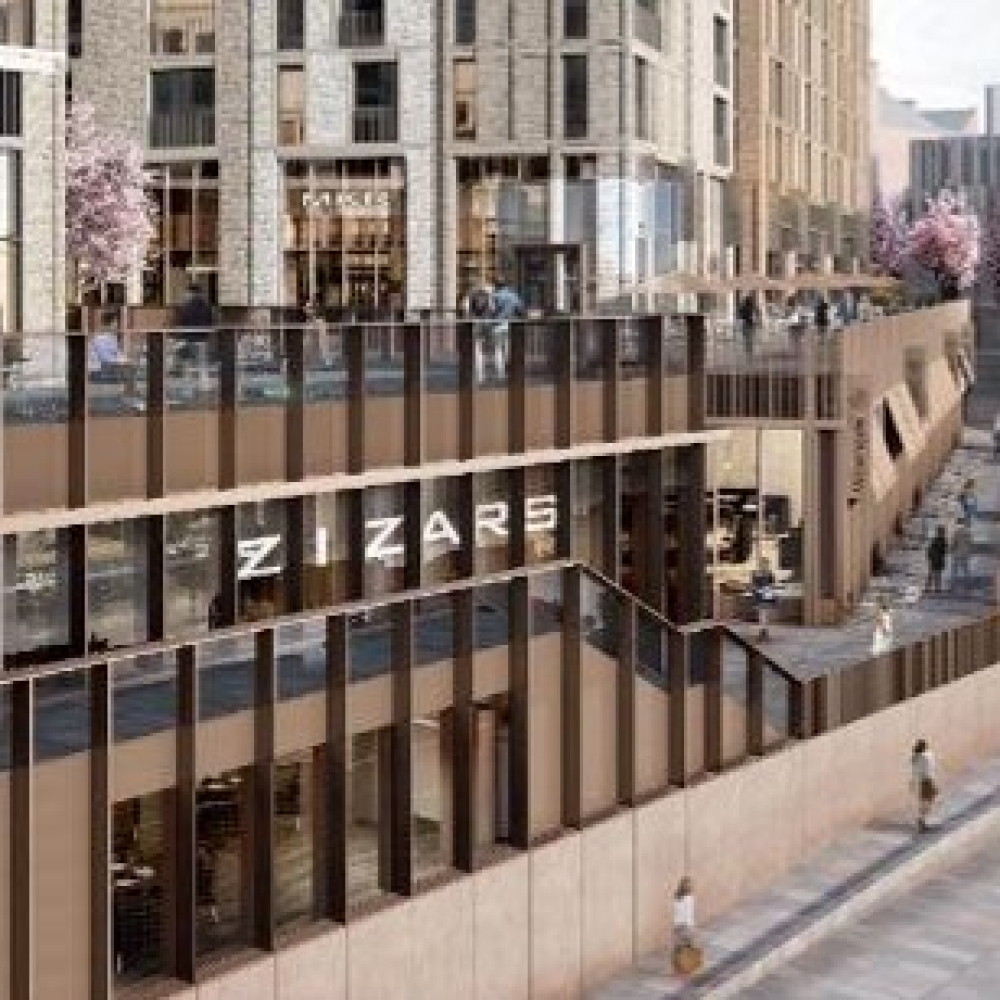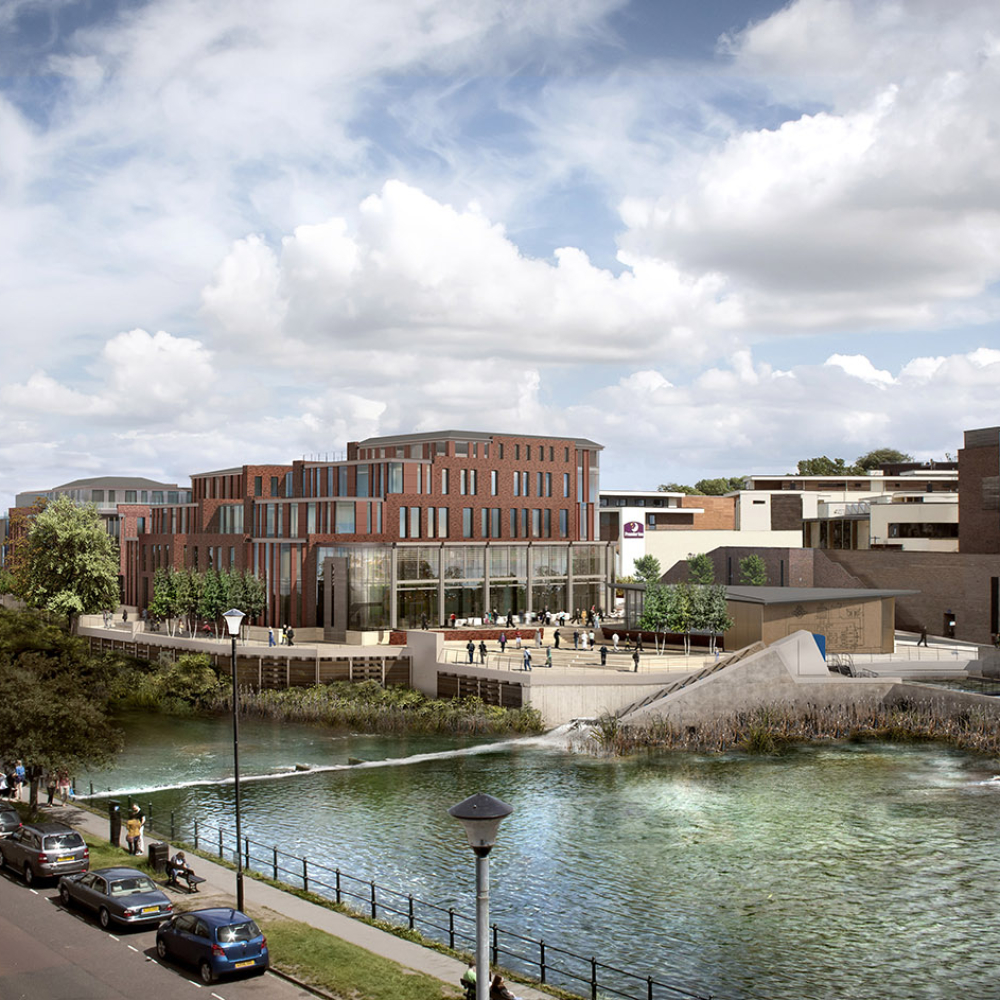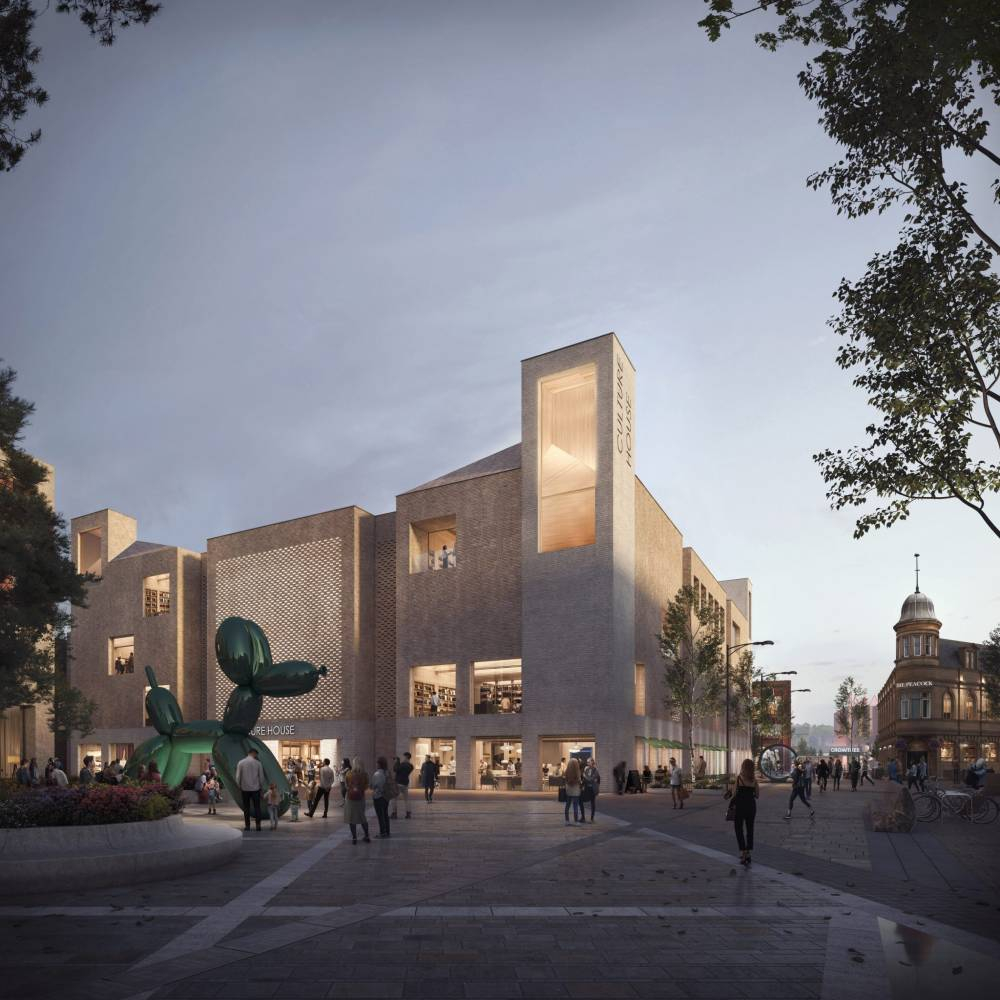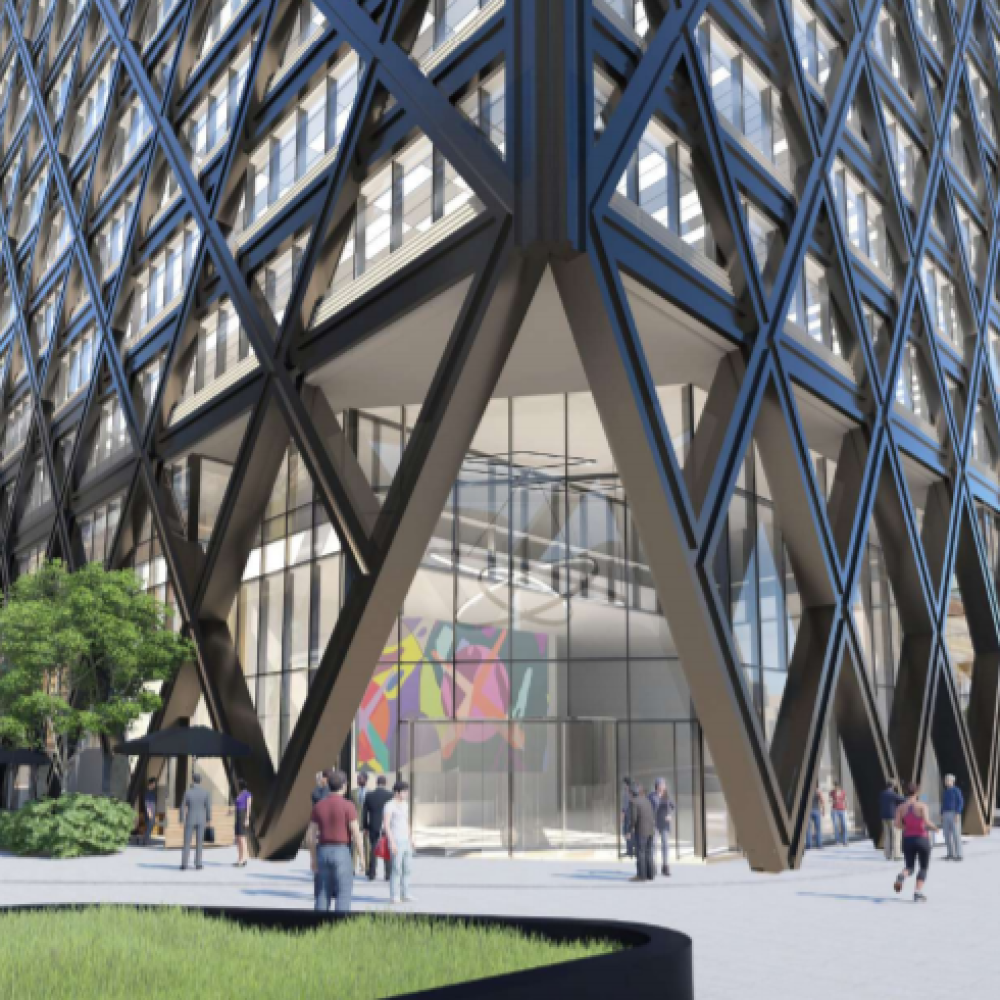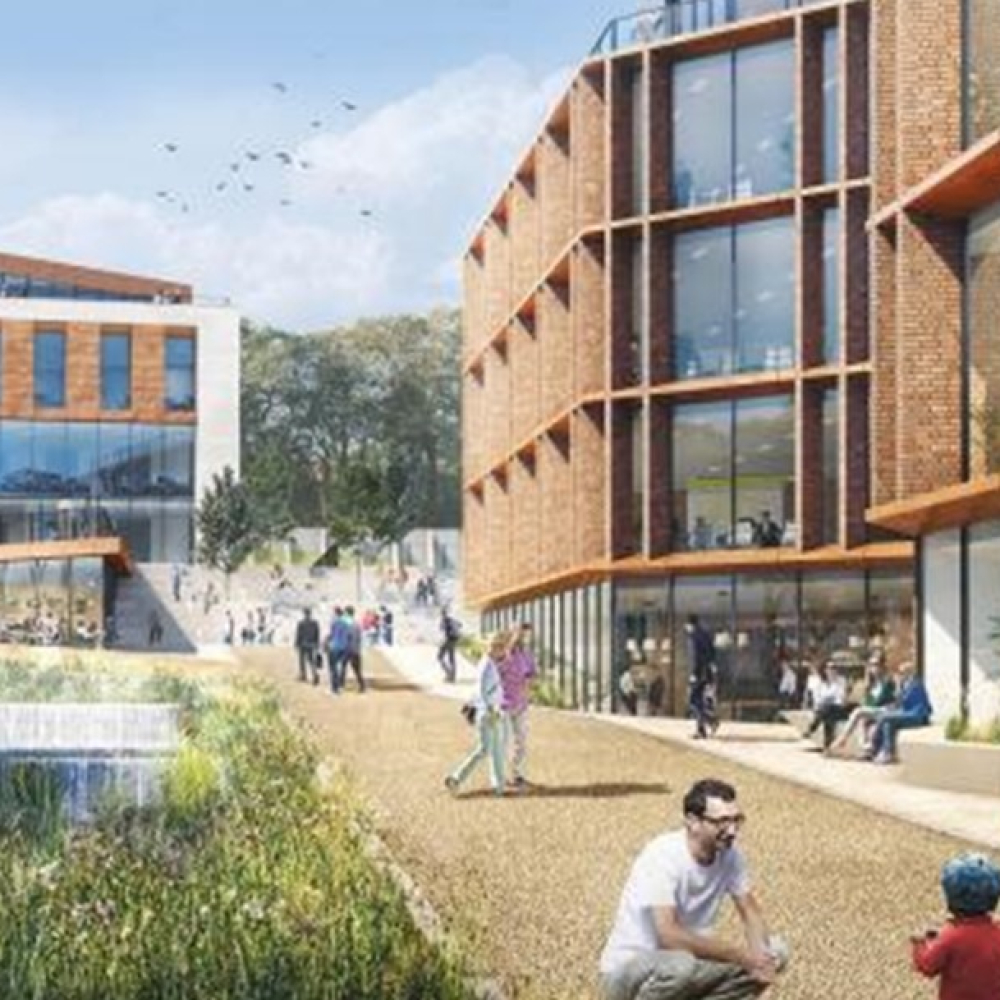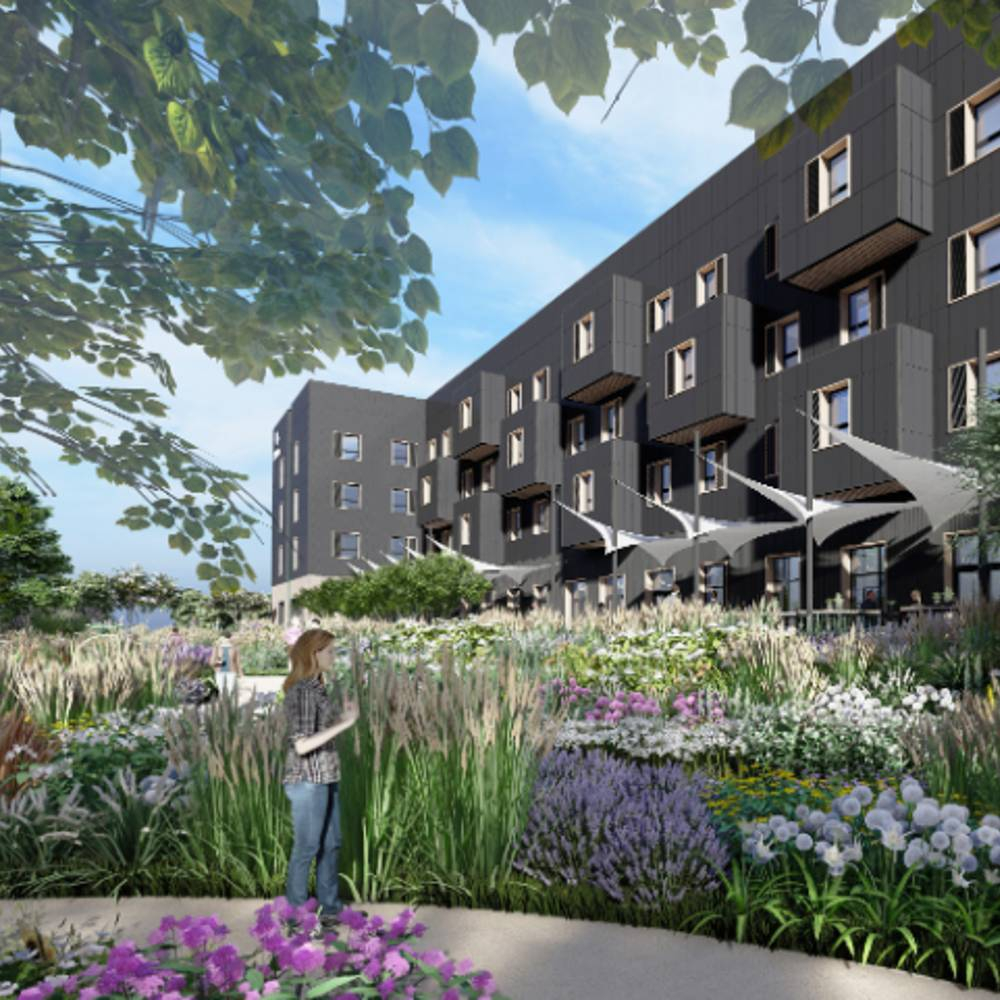DELIVERING Sports and leisure facilities across the UK
A message from our Head of Sports and Leisure
Sport and leisure plays an important role in the health and wellbeing of our communities and, when combined with the increasing value we place on the quality of our experiences, on human connection, and on social interaction, these fundamental principles drive our projects and buildings.
Through strong public/private sector partnerships and innovative operators, the boundaries of what town and city centre sport and leisure facilities can be are being pushed to new levels. This includes providing a range of town centre facilities under one roof and, consequently, growing participation in sport from grassroots to professional levels.
Both younger and older people are consciously making more time for leisure activities within their social circles, with increased participation in activities such as walking, cycling and team sports. We are experiencing a notable younger consumer demand for new and diverse forms of entertainment, including ‘competitive socialising’ and immersive ‘shared reality’ experiences using new technologies to entertain. This desire for a different type of social connection in the post-pandemic world and the drive for quality leisure and wellbeing provision is therefore having a positive influence on town centres, playing a fundamental role in revitalising our urban cores.
The DPP team have won several national awards for our sport and leisure projects. Our track record includes legacy projects for public facilities, town centre anchors and grassroots initiatives. We understand how much quality facilities can contribute to multigenerational and community wellbeing and, as such, must be as integrated into our towns and cities as much as places to live and work.
Image: Kirsten McCluskie
Strategic Solutions & Best Practice Planning
DPP has extensive experience in delivering a range of Leisure projects, including:
- Leisure centres
- Community facilities
- Cinemas and cultural hubs
- Sports stadiums and sporting facilities
Our experience of working with leisure clients, Local Authority providers and sports operators means we can manage the entire process of planning a leisure development, including addressing any environmental impact, sustainability and heritage issues. We prepare, submit and manage planning applications, but we do so much more to ensure the best results are achieved within the prescribed programme. This often starts with fully understanding the client’s aims and vision, appraising and scoping projects well in advance of an application being submitted, and advising on strategy to achieve the best result. Where required, we inform the assembly of a team capable of addressing the needs of the project before engaging with the planning authority and key stakeholders to ensure early ‘buy-in’. Perhaps most critical to the success of these projects is the need to fully engage the local community and users from the outset to help shape the facilities so they are fully fit for purpose and bespoke to user groups.
We ensure that we understand the project better than anybody else meaning that when we submit the application, we can address queries, and drive the project forward using positive engagement and nuanced negotiation on details to ensure timely consents and best value. This is why we consistently deliver results for our clients in the leisure sector.
Image: Hull Kingston Rovers
MORPETH LEISURE CENTRE
Client: Advance Northumberland
DPP were appointed by Advance Northumberland to advise them on their planning options for the development, prepare a planning strategy to address key issues and guide the team through the planning process. We placed a strong emphasis on positive collaboration with planning officers at Northumberland to deliver a permission on time to meet build and funding timescales. To achieve the planning balance, we showcased the comprehensive social, economic and environmental benefits of the scheme. Our planning officers were proactive
and dealt with challenging matters in a transparent and fair way. They pushed consultees to respond within appropriate timescales. As a result of early engagement and careful negotiation, there were no objections from consultees. The application was approved by committee within a 13 week timescale.
In order to keep the project on track, we came up with the idea of an early separate demolition prior to the notification application. We co-ordinated and submitted this at an early stage. The demolition was necessary to remove the existing structures on site before the new centre could take shape. We co-ordinated and submitted the full application for the new centre, and the demolition works were able to begin while the full application was being determined.
Already a proud landmark building, it has given Morpeth unprecedented growth, in the town centre and as a leisure tourist destination. The amalgamation of the local library, community services, part-time bank and learning spaces into a single building has transformed it into a dynamic community hub, leaving a lasting social impact on the town.
The project cost £21m and it has delivered excellent value for money in terms of the level of use it has already experienced, and growth to the local economy. It is estimated to have attracted £600,000 in additional spend in the town centre within the first 8 months since opening. Over 90,000 gym sessions have taken place and 65,000 fitness sessions have been recorded in the first 6 months.
Image: Kirsten McCluskie
Culture house, sunderland
Client: Sunderland City Council
DPP were appointed to provide planning services in respect of proposals for Culture House; a new cultural community hub, primarily functioning as a library alongside events, creative and café spaces in Sunderland City Centre.
The project is a crucial part of the Riverside Sunderland Masterplan and the Council’s strategy to renew and reshape the city centre. The site was a long-derelict series of former commercial buildings in the heart of the City Centre. The new Culture House is regarded as a catalyst for the regeneration of this part of the City, providing a focal point and a community draw.
Upon appointment, DPP began detailed pre-application discussions with the LPA and Historic England. We debated the application requirements and sought buy in for the proposals. Working with the LPA, we identified any potential constraints and considered ways to mitigate and overcome them. This rigorous problem solving at the outset streamlined the rest of the planning process.
DPP then prepared the detailed planning application, which included a Heritage Statement. We liaised closely with the project team to obtain the information required to support the planning application and make it fully comprehensive.
Key issues on this project were the ecology of the site, the drainage requirements, and the servicing arrangements. We addressed each of these issues with the LPA and the statutory consultees. Where necessary, we negotiated and amended plans, and throughout the project we maintained a positive relationship with all stakeholders and interested parties.
With early engagement, and continuous proactive negotiations, the application was approved by committee within the statutory timescales.
Image: FaulknerBrowns
Hull Kingston Rovers Sports Club
Client: Hull Kingston Rovers
This scheme in Hull has been described as a ‘once in a lifetime’ opportunity for the city. It will create new sporting facilities at Hull Kingston Rovers Sports Club, which includes a sports village that will be used by the club and the community.
The sports village will have brand new facilities including a gym, new playing pitches, and a padel centre. The new development sees the introduction of a fan zone where people can gather for sporting events in a community atmosphere. Alongside this, there will be refurbishments to the Waudby Leisure Centre to modernise these local amenities.
While the focal point of the scheme is the sporting facilities, the scheme extends beyond sport. There will be new employment and retail opportunities in the form of a new supermarket, a homeware store, and smaller business and retail units. The proposals include new offices and meeting space for The Hull KR Foundation, which will operate and manage the community facilities.
The masterplan is for all of this to be set in completely new public realm to help with the matchday experience and provide a new gateway to Craven Park. The plans contribute significantly to the wider rejuvenation efforts ongoing across East Hull by Hull City Council and aim to bring direct benefit to local communities.
Image: Corstorphine & Wright
Cranleigh Leisure Centre
Client: Waverley Borough Council
Designed by GT3 Architects, the new leisure centre in Cranleigh will provide the community with a range of updated facilities, including: a 25m swimming pool with six lanes, a large gym, multi-purpose studios, a spin studio, a children’s soft play area, a café, and accessible changing rooms.
The development will replace the outdated leisure centre facilities on the site and will give the community a modern hub for leisure and sporting activities.
The build has been designed in phases so that the existing leisure can remain open while the new centre is built. The new centre is planned to be open and fully operational in Spring 2027.
DPP worked closely with the design team and the LPA to address the issues that the site presented. For example, there were heritage constraints, and flooding and parking issues. We addressed these problems with the LPA at the pre-application stage and throughout the determination period to ensure that they were dealt with in a timely manner.
Image: GT3 Architects
BLYTH Culture hub
Client: Advance Northumberland
The Culture Hub in Blyth is a brand new facility for live music, comedy, drama, dance, and socialising. The hub has been designed by FaulknerBrowns Architects, and will include a three-screen cinema operated by Jam Jar Cinema, a play area, and a café. The space will be a place where people can gather to share their cultural interests, and it will encourage creativity and community in the town.
Alongside the development of the Culture Hub, the scheme includes improvements to the local market place. There will be a dedicated space for market traders, and more pedestrian zones to improve the public realm. The proposals have responded to the extensive community engagement sessions and feedback that the current market place is no longer fit for purpose.
Our role in this development was to secure planning application for the Culture Hub and the updates to the market place. We began with pre-application discussions with the LPA and statutory consultees to consider the designs and proposals. We discussed the application requirements that the local council would need for the scheme to be viable. With that information, we prepared a detailed Planning Statement and a Statement of Community Involvement to support the planning application. DPP liaised closely with the project team and LPA throughout the determination period to address matters relating to flood risk and drainage, design and highways. By solving these problems, we were able to secure a positive recommendation from the officers and we received approval at the planning committee.
Image: Faulkner Brown
